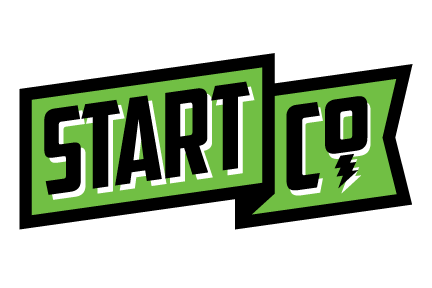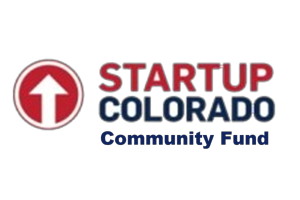Think of America’s most entrepreneurial city. Chances are Kansas City didn’t come to mind,but that’s exactly what the city began calling itself to communicate the importance of building a startup community.
Kansas City, Iowa City, and Boulder, Colo., are just a few examples of organic startup communities that have all the ingredients of big tech hubs like Silicon Valley: a tight network of entrepreneurs and experienced mentors and the support of government, universities, service providers, and investors.
When a startup community forms, ordinary people begin to take an interest in entrepreneurship.
They see how startups create jobs, build culture, and generate wealth by bringing revenue in from outside the community. When community members feel invested in local startups’ success, they become entrepreneurs’ strongest advocates — and potential angel investors.
The Evolution of an Organic Startup Community
When I started a co-working meetup in Iowa City back in 2009, a strong startup community did not exist. I believed there must be other people like me in my community, and I was inspired by the co-working events that were happening in other U.S. cities. These meetups were the first time many people came out of their basements and began working alongside others, revealing the cool, creative things they were working on, and encouraging one another.
It turned out I wasn’t the only one who believed we could form a startup community in Iowa City. In the following years, others emerged who wanted to help. We held events, started a newsletter, and made a micro social network for people in the Iowa City area.
These years were a turning point for the community. Economic development groups stepped up, the city contributed, and three permanent co-working facilities eventually opened. Because of the support of the University of Iowa, we have a strong educational environment with connections to the business community. This environment supports numerous meetups, including Iowa City Open Coffee, IowaJS, Iowa Tech Chicks, 1 Million Cups, and a growing number of others.
Scott Heiferman, co-founder of Meetup.com, recently spoke in Iowa City and defined community as “just a bunch of people talking to each other.” This is fundamentally what the community-building efforts consisted of.
Our efforts over the first few years were focused solely on helping entrepreneurs. In the initial stages of community building, we knew a group of angel investors would eventually be part of the equation. Without a strong pipeline of startups, however, it didn’t make sense to focus on engaging investors.
Instead, according to the vision of mastermind community builder Andy Stoll, we performed what he called “Community Alchemy,” which consisted of identifying, promoting, and connecting current and potential entrepreneurs. During this time, entrepreneurs would occasionally complain about a lack of available capital, and investors would complain about a lack of good deal flow.
Our belief that startup communities must be led by entrepreneurs — and not investors or other organizations — was similar to Brad Feld’s. Because of this, we kept the focus on helping entrepreneurs become successful through mentorship, promotion, and encouragement. We did this for three solid years and saw a number of promising young startups emerge. They obtained funding and, after some time, we found ourselves in a position to form an open forum-style angel investment group.
How to Turn Ordinary People into Investors
In a community like ours, ordinary people were the key to getting companies off the ground with the funding they needed, but it couldn’t have happened without first helping entrepreneurs to build strong startups. The support of regular people is critical because community members who have money have the potential to become angel investors. Potential investors exist in any community, but to activate their full potential, you must inspire them to support startups.
Potential investors will be inspired by:
• The opportunity to help others in their community.
• The chance to diversify their portfolios through alternative investments.
• The opportunity to get involved with the process of starting a new company alongside eager, energetic entrepreneurs.
There are a few ways to foster the kind of environment necessary to inspire ordinary folks to become investors. Here are four steps to get you started:
1. Help entrepreneurs. Creating strong startups is the best way to inspire potential investors to become active investors. Focusing on helping entrepreneurs by mentoring, supporting, encouraging, introducing, and connecting will help turn mediocre startups into stronger ones.
2. Introduce entrepreneurs to mentors. Mentors can provide valuable advice that helps entrepreneurs build better companies, but there’s another benefit. When people start helping entrepreneurs in any way, they’re more likely to become financially invested in their success if possible.
3. Teach entrepreneurs to craft a good pitch. Many entrepreneurs don’t know how to effectively communicate the value of their opportunities to investors. Create a culture where investors are good at pitching — not just to win contests, but to effectively show the value of their startup to potential investors.
4. Educate investors. Investors need education, too. They need to know how to invest, do due diligence, and recognize a good investment opportunity. They also need to understand what expectations are realistic when making an alternative investment. Forming an inclusive angel group for accredited investors is one way to create an environment in which investors can learn from each other.
Building a community is a community effort. You need businesses, government, and universities to contribute, but no one can “own” this community. The unique thing about investing in a startup community is that it’s not a zero-sum game. As you help to build the community, the community helps to build you. Never forget that to be successful, it can’t be about any one person or organization. It must be about the opportunities created for everyone involved.
Josh Cramer is the founder and CEO of Cramer Development, a word-class Web and mobile application development company that helps clients create new businesses and products through ideation and technical services.








